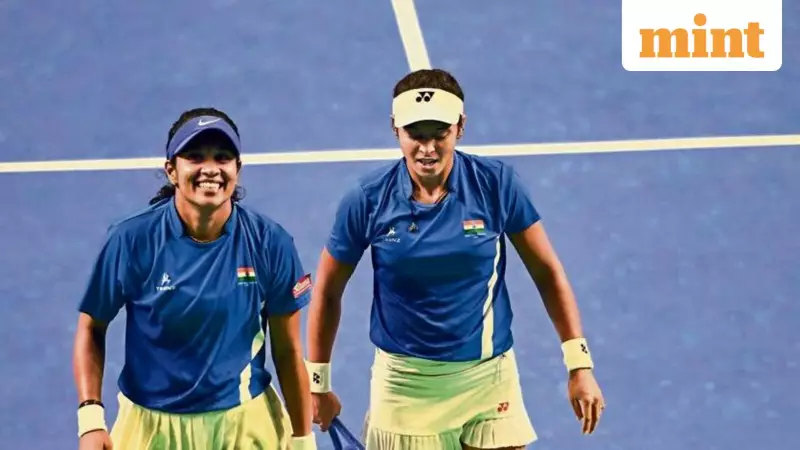
Following the Indian women's cricket team's World Cup triumph, another group of women athletes is poised to create history. The Indian women's tennis team begins its campaign for a maiden Billie Jean King Cup qualifiers spot when it hosts the playoffs at Bengaluru's SM Krishna Stadium from November 14-16.
Historic Opportunity for Indian Tennis
This marks only the second time India has reached the BJK Cup playoffs and the first occasion the nation is hosting a tie of this magnitude. Placed in Group G alongside Netherlands and Slovenia, the Indian team will compete in a round-robin format where the top team advances to the 2026 qualifiers.
"It's a very important stepping stone in the journey of women's tennis in India," says captain Vishaal Uppal, who previously led the team in the 2021 playoffs. "To get to the playoffs is no mean task. The Netherlands and Slovenia are quality teams, but we have also proven that we can punch above our weight."
The Challenge Ahead: Ranking Disparity and Form Concerns
The statistics reveal the enormity of India's challenge. Netherlands enters as the highest-ranked team in the group at world number 14, followed by Slovenia at 19, while India stands at 27. More significantly, both European nations boast players in the top-100 singles rankings.
Slovenia features Kaja Juvan (ranked 97) and Veronika Erjavec (98), while Netherlands fields Suzan Lamens (86). In stark contrast, India's top player Sahaja Yamalapalli sits at 310 in the world rankings, with Shrivalli Bhamidipaty at 383.
India's recent performance in the Asia-Oceania Group I in Pune, where they defeated higher-ranked teams like Thailand and South Korea, provides hope. However, maintaining that momentum has proven challenging for individual players outside the team environment.
Bhamidipaty, who emerged as India's Most Valuable Player in April with five consecutive victories, has struggled with form and a knee inflammation that required rehabilitation during July-August. "I had a minor inflammation in my knee for which I had to give it a little rest and just do my rehab and get back stronger," the 23-year-old explained.
Home Advantage and Team Strategy
While Bengaluru's hard courts don't provide a distinct surface advantage, the city's altitude of 920 meters above sea level could play a crucial role. "Unlike in Chennai, which is at sea level, the ball travels much faster in Bengaluru," Yamalapalli noted. "It is more difficult to control. Breathing is a little harder for the first five minutes or so."
The Indian team has been undergoing intensive training to adapt to these conditions. The expected lineup features Yamalapalli and Bhamidipaty handling singles duties, while experienced doubles specialists Ankita Raina and Prarthana Thombare are likely to partner for the crucial doubles matches.
Recent participation in the WTA250 Chennai Open has provided valuable match practice. Yamalapalli gained experience against Olympic silver medalist Donna Vekic, while Bhamidipaty scored a first-round victory and put up a strong fight against seventh seed Kimberly Birrell.
"I feel pretty confident coming into the playoffs," Bhamidipaty stated, whose aggressive playing style could prove decisive for India.
Embracing the Underdog Tag
Captain Uppal appears comfortable with India's underdog status. "We are the hunters, that works for us," said the former Davis Cup player. "If we can pull it off, we will be the first Indian women's team to reach the World Group qualifiers. And whatever else they do in their career, nobody can take that away from them."
The Billie Jean King Cup, often called the "World Cup of tennis," has evolved significantly since its inception as the Federation Cup in 1963. This year features 146 competing teams across seven tiers, with the playoffs serving as a crucial gateway to the elite qualifiers round.
As Indian women's tennis stands at the cusp of history, this determined group of athletes prepares to write a new chapter in the nation's sporting legacy, inspired by their cricket counterparts and driven by their own hunger for success on the global stage.






